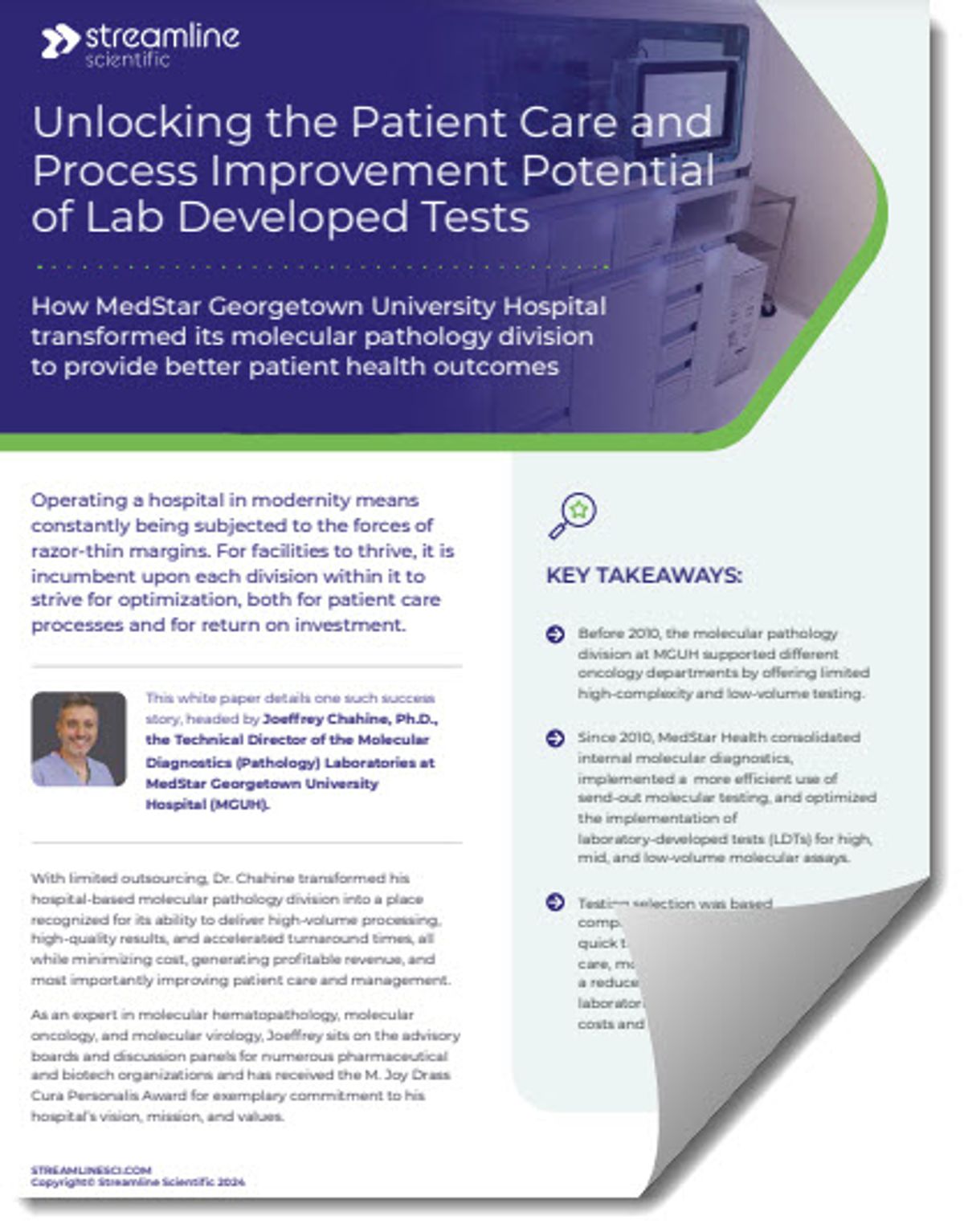Labs performing molecular testing, particularly for niche research or diagnostic areas and high-complexity samples or assays, can face numerous challenges in scaling up throughput. Clinical labs and hospitals especially are frequently reliant on reference labs while operating on a tight budget. Facing decisions between labor-intensive lab developed tests (LDTs) requiring validation and close monitoring and costly, limited commercially available FDA-cleared tests, small labs can quickly find themselves mired in inefficient processes that represent the worst of both—outsourcing and in-house—worlds.

In this case study, the molecular pathology division of a university hospital transformed its strategy and internal processes, flipping from costly, low-volume support to profitable practice. The lab previously operated on a low budget, relying on reference labs and analytically validated home-developed assays notorious for their compliance challenges. By working with stakeholders and strategically refocusing in-house resources and labor and outsourced elements, drastically reduced turnaround time and financial benefits were quickly realized, fueling further progress.
Download this whitepaper to discover actionable advice with demonstrated effectiveness for
- Transforming a costly testing service into a revenue-positive lab
- Strategically determining a balance of validated in-house LDTs and outsourcing while ensuring compliance
- Minimizing costs associated with both self-developed LDTs and outsourced testing
- Increasing stakeholder buy-in
- Building scalable solutions that accommodate rapid changes in demand
